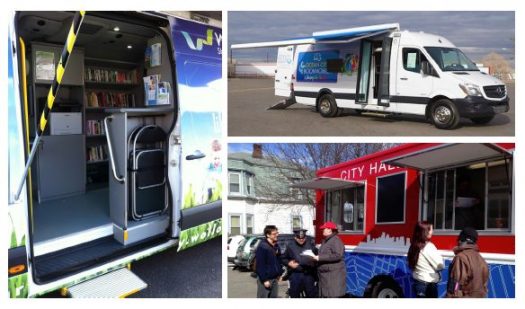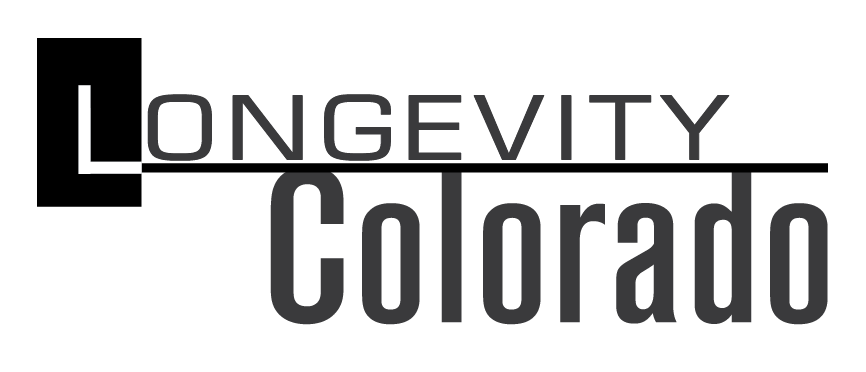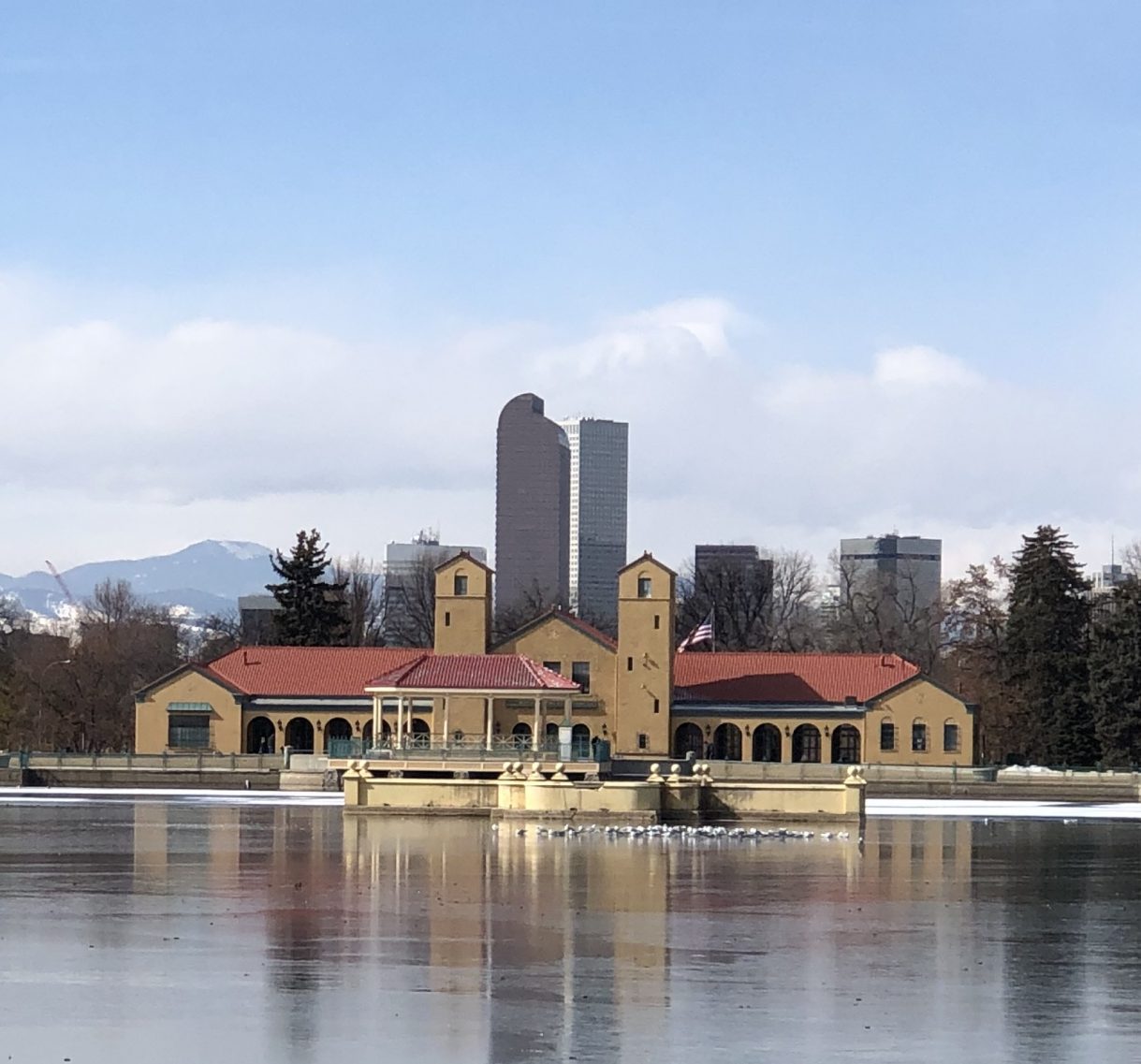
Denver is often listed as one of the nation’s best places to live. Through Denver Mayor Michael Hancock's Office on Aging, the city is rising beyond lifestyle and cost-of-living metrics to the new goal of becoming one of the best cities in America for older adults.
In 2015, Mayor Hancock took a leadership position in fulfilling Denver’s promise to become an age-friendly city by signing on with the World Health Organization’s Global Network for Age-Friendly Cities and Communities program in partnership with AARP .
With the city’s ambitious commitment comes the daunting task of implementation, requiring coordination of existing agencies’ services as well as a heightened focus on outreach, communications and advocacy programs. The person leading this charge is Perla Gheiler, Director, Office on Aging, Agency for Human Rights & Community Partnerships, City and County of Denver. Longevity Colorado sat down with Perla to learn how Denver is making an impact and serving the evolving needs of the older adult population.
Longevity Colorado:
Tell us about yourself and how you’re working to help Denver deliver on its promise to become an age-friendly city?Perla Gheiler: As the director for the Office on Aging, I oversee the Commission on Aging for the City and County of Denver. Our office falls under the Agency for Human Rights & Community Partnerships, and our executive director reports directly to the mayor. I’m coming up on two years in this position, and one of our main priorities during this time has been to deliver the Age Matters Report to the mayor’s office. With input from over 40 internal stakeholders, this is a comprehensive needs assessment that looks at every department and agency within the city and county, and examines how each is responding to the shifting demographics of our older citizens.
Based on the assessment, the stakeholders reconvened and came up with a road map for the city and county to become age-friendly. As this work continues, we’ve been able to highlight the key areas of focus including housing, transportation, safety, communications, workforce, art and civic engagement, and coordinated services.
We are working together now with every department and agency to reach the goal of being age-friendly every time we come into contact with an aging adult, and toward the greater goal of allowing more people to age in place longer.
Longevity Colorado:
What are some of the challenges you’re facing?Perla: Outreach and communications are critical and our challenge is to make these tactics effective. I come from a marketing and community relations background, and I know that how people receive information will determine how successful we’ll be.
Many people think that older adults are tech savvy, but for the most vulnerable – the disabled, the ones facing poverty, and those with language barriers in particular – access to information over the internet is not always available to them. Many call my office by phone. Many just don’t know what they don’t know, so if we’re not sharing the resources we have, they won’t know how to find us or how we can help.
With the 20 or so people on our Commission, we’ve got “boots on the ground” to talk with as many older adults as possible. From the feedback we’ve received over the last year, we’ve been able to advise the mayor and the city council on legislation to help address the challenges we’re coming up against.
Longevity Colorado:
What role does your office play?Perla: I like to think of our office as a convener for all the resources that are available in this great city, and bringing them together to work for our older adults. We want to find out where they are and go to them when we can, and get our partners to go there too, or we can go where our partners are working. We’re doing a lot of scheduling and coordinating between the agencies. I don’t want to re-invent the wheel or duplicate services. Instead, we want to use people and organizations that are already doing this well within our community.
Longevity Colorado:
Who and how are you providing support?Perla: We’re finding that pretty much all are 50-plus, but the ones who really need that extra level of support, the most vulnerable, are 65 and up. They are the ones most affected by disabilities, low-income and other issues. We survey everyone we speak with about their challenges, and ask lots of questions: Are you getting enough exercise? Are you getting three meals a day? Are you able to get out of your house?
We’re also connecting with and helping our constituents is by partnering with other agencies, such as the Office of Children’s Affairs. We know that during difficult times it’s often older grandparents that are taking care of kids. We can help make sure that these older caregivers have the information they need to be able to support the children that are in their care.
And we know that a lot of older adults have pets. If an older adult goes into the hospital, who’s taking care of their pet? We’re partnering with Animal Protective Services. Older adults have a lot of transportation issues, like having to get to doctor’s appointments or to the grocery store, so we’re working with Denver Human Services, the Denver Regional Council of Governments (www.drcog.org) and others to solve some of those problems as well. [See sidebar for additional services].
Longevity Colorado:
What are some of the key findings in the Age Matters Report, and what are you learning when you get out in the community?Perla: There are several important observations that are helping direct our efforts. First, almost everyone wants to be independent. Everyone wants to afford groceries, go to a movie, stay in their neighborhoods. Few are willing to ask for assistance. But many of our older adults are barely making it, and it’s not their fault. Some will say that they didn’t save enough, but then again, no one could have imagined the spikes in costs and inflation over the years, the increased healthcare expenses, even the higher grocery bills that we have today. Though most would like to be in a place where they didn’t have to ask for help, the reality is, they need it. We know the challenges are out there, and now we know that there are more people that need our help than ever.
“The goal is to have an impact on seeing older adults stay in their homes and neighborhoods longer, that they’re able to get to the doctor or the grocery store safely, and that they are engaged in conversations about aging.”
Longevity Colorado:
What’s your vision for the future?Perla: I grew up in Pueblo with my grandparents who lived on maybe $400 or $500 a month. But you know what? We had food on the table every day. We had clothing. We didn’t have a car so we walked everywhere or took the bus. With such basic needs, it was innate for us to help one another. I would never allow my grandparents to be without food or not have a way to get to the doctor. That’s how we should look at our community. I’m very passionate about this work, to not only give information, but to take information in that leads us to help where it’s needed.
My hope for the future is that we’re impacting everyone who really needs assistance. We want to allow more people to age in place and live independently for as long as they can, to be as vibrant, healthy and happy as they can, with the highest quality of life possible.

Resources Available for Denver’s Older Adult Residents
My Denver Prime Card allows free access for 60-plus adults to city recreation centers. “This is having so many positive results,” said Gheiler. “First, it allows for older adults to be active physically, whether it’s in our Silver Sneakers program or yoga or swimming.” This program also encourages mental engagement by socializing and meeting up with others to become friends, network, and to help prevent the isolation that many older adults face today.
Accessory Dwelling Units (ADUs) are smaller homes behind bigger homes, sometimes described as mother-in-law-units, granny pods, or tiny homes. “We’re starting to see more community discussions in support of an ADU strategy,” said Gheiler. “We’re working with the Office of Economic Development to take a closer look at these creative solutions for more affordable housing.”
Vision Zero is a global program that the Office on Aging is starting to adopt with an action plan to eliminate traffic fatalities. It’s a preventive approach that promotes safer mobility by prioritizing traffic safety as a public health and policy issue. This can mean longer pedestrian walk lights with bigger fonts for older adults with canes and wheelchairs, covered shelters, and fixing sidewalks that are in disrepair.
Stop Fraud Colorado addresses the tremendous threat of financial fraud that plagues older community members. “As part of our advocacy focus, we’re working with the State Attorney General’s Office in a pilot program to address this growing problem,” said Gheiler. “We’re increasing our capacity to teach more people about fraud prevention, and in parallel with the State’s already stellar program, Stop Fraud Colorado, we hope to roll this out in the city. We see it as a real game-changer, something we can establish best practices for here in Colorado, then expand nationally in multi-state cooperation.”
DenverConnect is a program designed to share information about Denver’s resources and human services like long-term care and SNAP (Supplemental Nutrition Assistance Program) by going out into the community. We saw the need for more direct, personal outreach to connect our older adults with resources they need but may not know about, explained Gheiler. The DenverConnect van provides that high-touch experience by including a pullout table and chairs, technology services and a staff person.
The van will visit areas around the city and county like libraries and community centers to distribute information and answer questions. To find out where the van will be there will be a website that posts details as to when and where it will be available.
Denver Coordinated Workgroup is another way the Agency for Human Rights and Community Partnerships creates and shares information to help guide people to services they need. The Workgroup has compiled a detailed menu of resources ranging from health care and transportation to legal assistance and estate planning.
Older Adult Resource Directory is a comprehensive guide that embodies the Denver Commission on Aging’s mission to empower older adults through disseminating information and sharing community services. Virtually every resource is listed and categorized with contact information, as well as helpful instructions regarding benefits, tax exemptions and educational opportunities.

